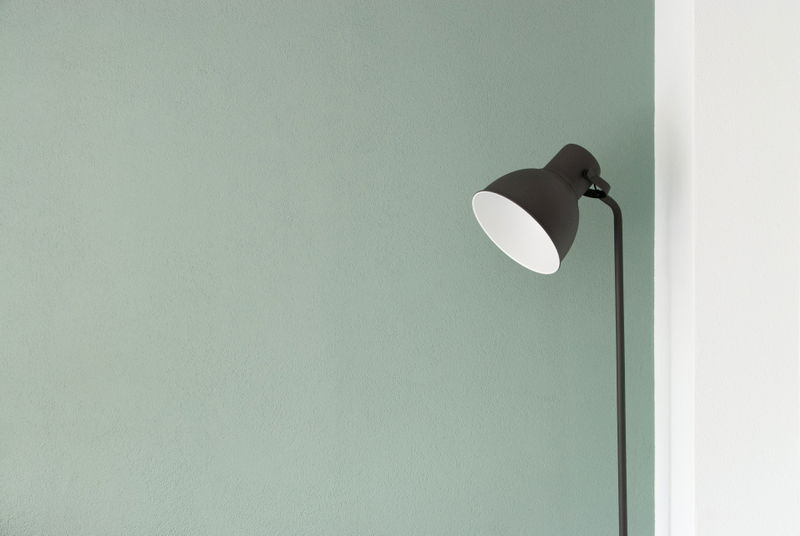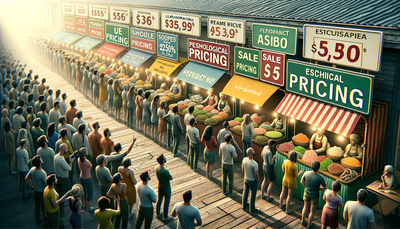Minimalism in Website Design: What It Is and What It Offers
Minimalism in website design is the practice of using a limited color palette, typeface, and space to create simple and modern designs that focus on user experience. Minimalism offers designers the opportunity to create streamlined, attractive websites that are attractive and easy to navigate.Table of Contents:

What Is Minimalism?
Minimalism is a design aesthetic that focuses on creating a strong, meaningful experience through the care and use of a select few elements. It is based on the idea that less is more, and that the careful selection and placement of those elements will provide a clearer, more impactful experience for the user. Minimalism is defined by its minimal use of colors, graphics, and other ornamentation. The website design should be simple and clear in order for the content to be in focus. Minimalistic designs often use plenty of whitespace to provide a sense of clarity and organization, making it easier for users to find what they need. This can foster a feeling of openness and sophistication, while still providing all the necessary information. Do you need a website? Want to build a website but don't know where to start? Our website builder is the perfect solution. Easy to use, and with the ability to customize to fit your business needs, you can have a professional website in no time.
The Benefits of Minimalism
The benefits of minimalism in website design are many. By utilizing minimalism, a website can create a visually appealing, modern look and feel while also improving the user experience. Minimalist design is often simpler, faster, and easier to use than traditional websites with lots of graphics, photos, and text. This makes it easier for visitors to find the most important information quickly, making the search process more efficient. Furthermore, minimalism typically helps to keep page loading times low, which can give visitors a better user experience and improve page views. Additionally, minimalistic designs require less maintenance and updates, meaning that websites can last longer without needing to be replaced. Lastly, minimalistic designs typically load faster on mobile and tablet devices, making it a great choice for businesses looking to target those audiences.Creating a Minimalist Design
Creating a minimalist design for a website is an art form that requires dedication and a deep understanding of the principles of minimalism. Minimalism in website design allows for a focus on the most important elements that make up the overall design. It emphasizes simplicity and clarity, making it easier for users to find what they need without distractions. By removing superfluous elements, a minimalist website design can highlight essential functions and provide users with a better experience. It should also take into account the user's needs, the goal of the website, and ensure it is user-friendly on all devices. A successful minimalist design minimizes or eliminates page layout constrictions, removes heavy text and bulky graphics, and maximizes the use of white space to bring attention to the content that is most relevant. Additionally, with a minimalist design, thoughtful typography and color will help to focus attention and make the most impact. Building a website with SITE123 is easy
Avoiding Common Mistakes
When it comes to minimalist website design, it can be easy to make mistakes that detract from the user experience. To ensure your design is successful, it is important to avoid these common mistakes.First and foremost, it is important to avoid using too many colors in minimalist website design. Too many colors can create a cluttered and overwhelming look, which defeats the purpose of minimalism. Instead, stick to two to three colors that complement each other.
Second, avoid using too many fonts. It is recommended to use two fonts - one for header elements and one for the body text - to ensure the website remains visually balanced.
Third, it is important to ensure the website remains responsive and user-friendly on mobile devices. Minimalist designs can be difficult to make responsive, so it is important to keep this in mind throughout the design process.
Finally, be sure to resist the temptation to add design elements that are unnecessary. Minimalist web design is minimalistic by nature and should be free of any features that are not essential.
By avoiding these common mistakes, your minimalist website design will be as successful and impactful as possible.
Using the Right Software
The right software is essential for achieving a minimalist aesthetic in website design. Popular applications such as Adobe Photoshop and Illustrator offer a range of design tools and features to help create a simplified and effective website layout. With drag and drop features, users can easily create professional-looking webpages with minimal design elements, allowing for a sharp, streamlined look. Additionally, the software includes features for web development, allowing for cohesive and responsive website design. Utilizing the right software is important for allowing designers to maintain a minimalist theme, while still offering visitors a visually pleasing and streamlined experience.Make the Most of Color
When it comes to minimalism in website design, one of the most important aspects is the use of color. While the overall design must be free of busy, distracting elements, color can be used to easily grab viewers' attention and provide important information. When using color with minimalism, it is important to select just a few colours and shades, then use them to highlight the most important aspects of the site. Color can be used to give focus to important buttons and interactive features and provide clues about how to navigate the site. By taking the time to choose the best colours for the design and making sure they are used sparingly but effectively, minimalism can be used to create dynamic and engaging website designs.Add Simple Graphics
One of the core elements of minimalistic website design is the use of simple graphics. In minimalistic website design, it is important to maintain a high level of simplicity throughout the design. Therefore, simple graphics should be used sparingly for effective web design. The use of high quality images and illustrations can help to create a sense of cohesion throughout, but should be balanced with free space and simplicity.In order to simplify any website design, it is important to select appropriate and relevant graphical elements. The use of minimalistic graphic elements can be a great way to achieve this. Simple elements such as lines, circles and squares can be used to draw attention to certain content without detracting attention away from other elements. Additionally, these basic shapes can be used to create more complex illustrations and images with ease.
Finally, while the use of simple graphics can be effective, designers should be careful not to overuse them. Overusing graphics within a minimalistic website design can take away from the effectiveness of the design, as it can be difficult to create an aesthetically pleasing and balanced design with too much graphical content.





